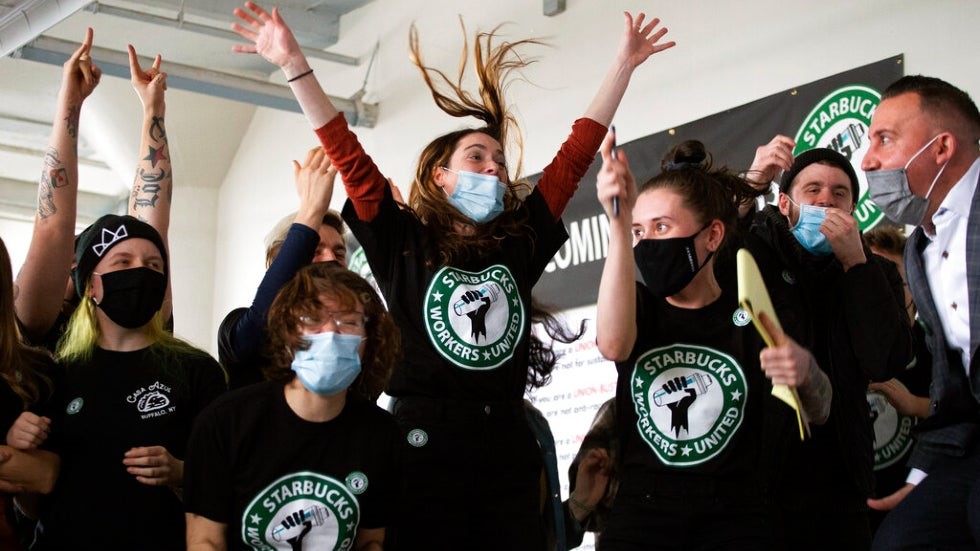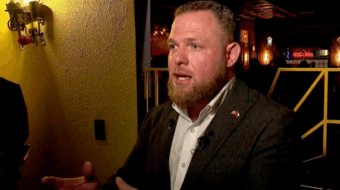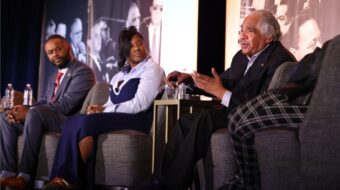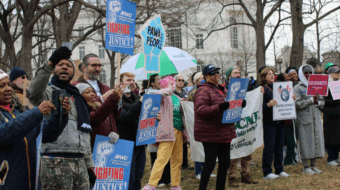
NEW YORK—Taking up their bosses’ dare—or maybe calling its bluff—members of Starbucks Workers United, the grassroots nationwide movement that has organized 244 Starbucks stores and counting, are starting to craft bargaining proposals.
The response came as two more stores, one in D.C., at 1429 P Street N.W., and another in Santa Maria, Calif., joined the ever-growing list of eateries that have gone union. The California vote was 14-4.
The galloping unionization movement at Starbucks is part of the mass movement of underpaid, exploited workers—adjunct professors, baristas, warehouse workers, port truckers, and retail workers—who have had it up to here with corporate control and greed and responded by unionizing in record numbers.
That’s especially true at Starbucks, whose longtime CEO, Howard Schultz, is intensely anti-union and whose anti-SWU campaign has featured rampant labor law-breaking—so much so that the New York regional office of the National Labor Relations Board forced him into a settlement at a flagship store, the New York City Roastery, in Manhattan, on October 3.
It promised to stop retaliating against workers who try to organize their colleagues, erase “certain unwarranted disciplinary actions…from employee records” and post the settlement notice in the store’s break room. But the settlement also lets Starbucks claim “the agreement does not constitute an admission of wrongdoing, liability or violation of law.”
The developments don’t mean Starbucks has seen the light, though. The next day, citing unspecified “health and safety reasons” as an excuse, it abruptly closed the Colorado Springs, Colo., store just before a bargaining session was scheduled to begin.
Nevertheless, the firm wrote to 234 unionized stores, demanding they use a three-week window in October to bargain, Harvard’s OnLabor blog reported. Right now, OnLabor says, there’s bargaining at only three stores, not counting Colorado Springs.
SWU responded by publishing its first two bargaining proposals but wondering if the coffee chain is really serious about negotiations.
“It’s been no secret Starbucks has been delaying negotiating sessions and avoiding bargaining,” Tyler Keeling, a pro-union Long Beach, Calif., worker leader told SWU. “So we’ve been hard at work preparing for them to finally take a seat at our table.
“We’ve been ready since Day 1, but now we’re operating together on a national level to make sure all our voices are heard, together.”
SWU’s first nationwide bargaining proposal, “Transfers and picking up shifts” would give workers the right to transfer between stores and to “pick up shifts at non-union stores.”
That was followed by a worker proposal for a more liberal dress code. “Workers will not be held to a dress code, except where local, state or federal health or safety standards enforced,” their proposal says.
And in an indication of dangerous working conditions, SWU proposes Starbucks provide each worker “two pairs of non-slip shoes a year,” along with fresh aprons for every shift “and visors for workers who cannot comfortably use Starbucks-provided hats.”










